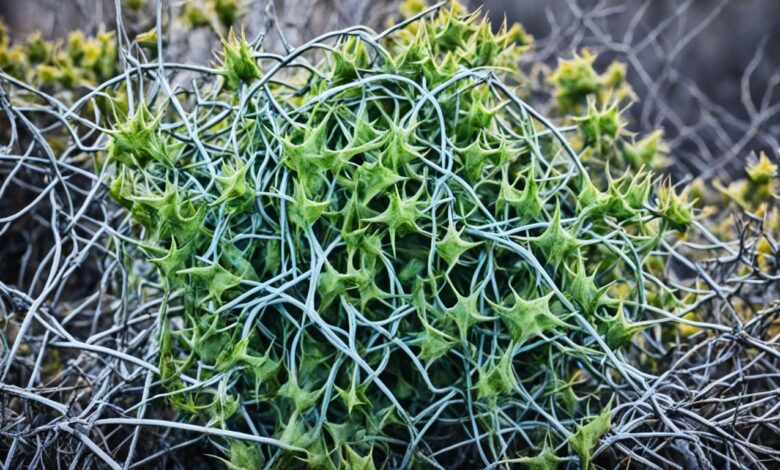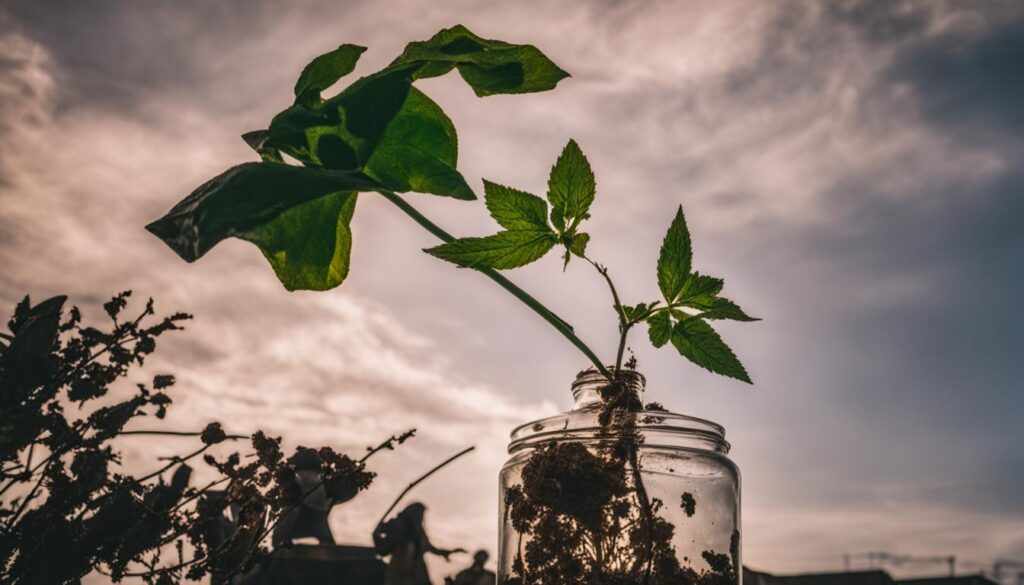Navigating Toxic Friendships: Tips & Insights

Did you know that toxic friendships can have a significant impact on our well-being and mental health?
It’s crucial to recognize the signs of toxicity in friendships, such as constant criticism, manipulation, and a lack of respect for boundaries. Ending toxic friendships can be challenging, but prioritizing our own happiness and surrounding ourselves with positive influences is essential for personal growth and emotional well-being.
Key Takeaways:
- Toxic friendships can negatively affect our mental and emotional state.
- Recognize the signs of toxicity, including constant negativity, jealousy, and lack of respect.
- Ending a toxic friendship requires setting boundaries and prioritizing self-care.
- Seeking professional help can provide guidance and support during the process.
- Healing from toxic friendships is a journey that requires time and self-reflection.
Recognizing Toxic Friendships
Toxic friendships can take various forms, all of which have a negative impact on our mental and emotional well-being. It’s important to be able to identify the signs of toxicity in friendships and evaluate how they affect us overall.
Common Signs of Toxic Friendships
- Constant negativity: A toxic friend often displays a consistently negative outlook, frequently complaining or criticizing others.
- Jealousy: They may become envious of your achievements or success and try to undermine your accomplishments.
- Lack of respect and boundaries: Toxic friends often disregard your boundaries, making you feel disrespected or violated.
- One-sided relationships: They prioritize their needs and interests without considering yours, leaving you feeling unimportant or used.
- Gaslighting: Toxic friends may manipulate your perception of reality, making you doubt your own thoughts and experiences.
By recognizing and acknowledging these signs, we can gain a clearer understanding of the dynamics present in our friendships. This awareness allows us to make informed decisions about the impact toxic friendships have on our well-being.
Assessing the Impact
It’s important to reflect on how toxic friendships affect our mental and emotional state. Ask yourself the following questions:
Is this friendship causing me more harm than good? Am I consistently feeling drained or unhappy after spending time with this person?
Evaluating the impact a toxic friendship has on your overall well-being is an essential part of taking care of yourself.
The Impact of Toxic Friendships
Toxic friendships can have a significant negative impact on our mental and emotional well-being. The toxic behavior of a friend can lower our self-esteem, drain our energy, and leave us feeling devalued and exhausted. It’s essential to understand the traits and behaviors associated with toxic friends in order to make informed decisions about the friendships we choose to maintain.
Constant criticism is one of the key toxic friend behaviors that can wear down our confidence and self-worth. A toxic friend may consistently belittle our achievements, judge our decisions, or make hurtful comments. This constant negativity can erode our self-esteem and lead us to question our own worth.
Manipulation is another characteristic of toxic friend behavior. A toxic friend may subtly or overtly manipulate us to serve their own agenda. They may use guilt, emotional blackmail, or manipulation tactics to control our actions and decisions. This undermines our autonomy and can lead us to doubt our own judgment and agency.
Lack of support is a significant trait of toxic friends. Instead of being a source of encouragement and understanding, toxic friends may dismiss our feelings, invalidate our experiences, or fail to show up when we need them most. This lack of support can leave us feeling isolated and emotionally drained.
Recognizing these toxic friend behaviors and traits is crucial in order to protect our mental and emotional well-being. By identifying toxic friendships, we can make proactive decisions to either address the issue with the friend and work towards a healthier dynamic or distance ourselves to prioritize our own happiness and emotional health.
“Toxic friends bring chaos and negativity into your life. Choose friends who lift you up and truly support you.”
By surrounding ourselves with positive influences and cultivating healthy relationships, we can create a supportive and uplifting social circle that contributes to our overall well-being. Letting go of toxic friendships is a powerful step towards personal growth, healing, and creating a life filled with positive connections.
| Toxic Friend Behavior | Impact |
|---|---|
| Constant criticism | Lowered self-esteem and self-worth |
| Manipulation | Loss of autonomy and self-doubt |
| Lack of support | Emotional isolation and drained energy |
How to End a Toxic Friendship
Ending a toxic friendship can be a difficult and emotional process. When we find ourselves in a toxic friendship, it’s important to prioritize our own well-being and take steps towards creating a healthier and happier life. Here are some strategies for ending a toxic friendship:
1. Recognize the Signs
Start by recognizing the signs of a toxic friendship. Look out for behaviors such as constant criticism, manipulation, disrespect for boundaries, and a lack of support. Understanding the dynamics of the friendship can help you make a more informed decision about ending it.
2. Set Boundaries
Establish clear boundaries with your toxic friend. Communicate your concerns and needs, making it clear what you will no longer tolerate in the friendship. Setting boundaries can help protect your emotional well-being and create a healthier dynamic.
3. Assess the Friendship
Take a step back and assess the friendship’s impact on your life. Consider the negative effects it has on your mental and emotional well-being. Reflect on whether the friendship brings more harm than happiness and whether it aligns with your values and goals.
4. Communicate Your Decision
Have an open and honest conversation with your toxic friend about why you’ve made the decision to end the friendship. Express your feelings calmly and assertively, and avoid blaming or attacking them. Be prepared for different reactions, including denial, defensiveness, or an attempt to manipulate you into staying.
5. Seek Support
Reach out to other friends or a mental health professional for support during this challenging process. Talking to someone who understands your situation can provide valuable guidance and ensure you have the emotional support you need.
6. Remove Toxic Influences
Take steps to remove toxic influences from your life. This may involve unfollowing or blocking them on social media, avoiding places where you might run into them, and creating distance. Surround yourself with positive influences and focus on nurturing healthy relationships.
“Ending a toxic friendship is an act of self-care and self-love.”

7. Embrace the Journey
Understand that ending a toxic friendship is a process. It may involve feelings of loss, grief, and even guilt. Embrace the journey of healing and take the time to nurture yourself. Engage in self-care practices, explore new hobbies, and invest in building healthy relationships.
8. Focus on Personal Growth
Use the experience of ending a toxic friendship as an opportunity for personal growth and self-reflection. Take time to understand why you allowed the toxic friendship to persist and learn from the experience. This will help you make wiser decisions in the future and foster healthier relationships.
| Benefits of Ending a Toxic Friendship | Benefits of Ending a Toxic Friendship |
|---|---|
| Improved mental and emotional well-being | Increased self-esteem and self-worth |
| Greater sense of peace and happiness | Opportunity for personal growth and self-reflection |
| Improved decision-making regarding relationships | Freedom from negativity and toxicity |
The Importance of Self-Care
When dealing with toxic friendships, it’s crucial to prioritize self-care. Taking care of ourselves emotionally, physically, and mentally is essential for our well-being and resilience.
Practicing self-care allows us to heal from the emotional toll of toxic relationships and regain our sense of self-worth and happiness. It involves investing time and energy in activities that nurture our mind, body, and soul.
One important aspect of self-care is surrounding ourselves with positive influences. Building healthy relationships based on respect, support, and mutual growth is instrumental in recovering from toxic friendships. Surrounding ourselves with uplifting and empowering individuals can help us rebuild our confidence and restore our faith in healthy connections.
Another vital aspect of self-care is setting boundaries. Learning to establish and enforce personal boundaries is crucial when dealing with toxic friends. By defining what is acceptable and unacceptable in our relationships, we protect ourselves from further harm. It’s important to communicate our boundaries clearly and assertively, ensuring that our own well-being remains a priority.
Engaging in activities that promote self-reflection and personal growth is also part of self-care. This can include journaling, meditation, therapy sessions, or participating in support groups. These practices can help us gain clarity, process our emotions, and develop resilience in the face of toxic relationships.
Self-care is an ongoing process that requires dedication and patience. By prioritizing self-care, we demonstrate our commitment to our own well-being and happiness. It’s important to remember that self-care is not selfish but rather a necessary practice to maintain our mental and emotional health.
Ultimately, by prioritizing self-care, we empower ourselves to heal and create a life filled with positive and fulfilling relationships. Letting go of toxic friendships opens up space for new connections that align with our values and contribute to our growth.
Cultivating Positive Relationships
After ending a toxic friendship, it’s important to focus on nurturing healthy and positive relationships. Surrounding ourselves with supportive individuals who uplift and empower us can have a significant impact on our overall well-being. Building strong connections with people who genuinely care about our happiness and growth is essential for creating a fulfilling social circle.
When cultivating positive relationships, it’s crucial to set boundaries and prioritize our well-being. Healthy relationships are built on mutual respect, trust, and open communication. It’s important to surround ourselves with individuals who encourage our personal development, celebrate our successes, and provide support during challenging times.
“Surround yourself with only people who are going to lift you higher.” – Oprah Winfrey
Quotes about toxic friends can serve as a reminder to choose companions who bring out the best in us. They can inspire us to opt for relationships that contribute positively to our lives rather than engaging in toxic dynamics. Remembering these wise words can guide us in our journey to building and maintaining healthy connections.
In the process of cultivating positive relationships, it’s also important to reflect on our own behaviors and characteristics. Being self-aware and working on personal growth fosters healthier interactions with others. Embracing empathy, kindness, and understanding can help create an environment where positive relationships can thrive.
It’s worth noting that building positive relationships takes time and effort. Patience and consistency are key in nurturing meaningful connections that withstand the test of time. Investing in our relationships and actively participating in them cultivates stronger bonds and genuine friendships.
The Benefits of Healthy Relationships
Cultivating positive relationships has numerous benefits for our well-being:
- Enhanced emotional support and understanding
- Inspiration and motivation for personal growth
- Increased self-esteem and self-confidence
- Feeling valued and appreciated
- Reduced stress levels and improved mental health
Cultivating positive relationships is a continuous process that requires intention and effort. It’s an investment in our own happiness and overall well-being. By surrounding ourselves with individuals who support and uplift us, we create a nurturing environment that fosters personal growth, resilience, and joy.
The Challenges of Letting Go
Letting go of toxic friendships can be an emotionally challenging journey. It may involve grieving the loss of a once-close friend and facing the uncertainty of the unknown. However, prioritizing our own well-being and choosing our peace over toxic relationships is an act of self-care and self-love.
“Sometimes the hardest part about walking away from a toxic friendship is accepting that the person we once cared about has changed and is no longer good for us.”
Recognizing the challenges that come with letting go is crucial to navigating the process with resilience and strength. It’s normal to experience a range of emotions, from sadness and guilt to anger and relief. Allow yourself the permission to feel these emotions and understand that they are a natural part of the healing process.
As you let go of toxic friendships, remind yourself of the reasons why you made this decision. Reflect on the negative impact the toxic relationship had on your well-being and growth. By acknowledging the toxicity and recognizing your own worth, you are taking a significant step forward.
During this time, surround yourself with supportive friends and loved ones who uplift and validate your experiences. Seek solace in the company of those who genuinely care for your well-being. Taking time for self-care, engaging in activities that bring you joy and fulfillment, can also aid in the healing process.
Embracing New Beginnings
Letting go of toxic friendships creates space for new and healthier relationships to enter your life. Embracing new beginnings means actively seeking out positive influences and nurturing connections based on trust, respect, and mutual support.
Remember, healing takes time, and every step forward is a testament to your strength and resilience. Trust yourself and have faith that letting go of toxic friendships will ultimately lead you to a happier and healthier future.

| Signs of Toxic Friendships | How to Let Go of Toxic Friends | Dealing with Toxic Friendships |
|---|---|---|
|
|
|
Letting go of toxic friendships requires strength and self-awareness. By breaking free from toxic relationships, you are creating space for personal growth, emotional well-being, and a positive support system in your life. Trust the process and know that you deserve healthy, fulfilling connections.
For more information on toxic friendships, visit Healthline.
Seeking Professional Help
If you find yourself overwhelmed by the challenges of navigating toxic friendships, seeking professional help can be a beneficial step in your journey towards healing and growth. A mental health professional can provide valuable guidance, support, and tools for coping with the emotional challenges that come with dealing with toxic friends.
Professional therapists or counselors have the expertise to help you navigate the complexities of toxic relationships. They can offer a safe and non-judgmental space for you to share your experiences and emotions, allowing you to process your feelings and gain a deeper understanding of the dynamics at play.
Remember, toxic friendships can have a profound impact on your mental and emotional well-being. Seeking professional help is not a sign of weakness but a courageous step towards taking control of your life and fostering healthier relationships.
During therapy or counseling sessions, you can explore the signs of toxic relationship behavior, identify patterns in your friendships, and learn effective strategies for setting boundaries and dealing with toxic friends. A mental health professional can also help you develop healthy coping mechanisms, boost your self-esteem, and equip you with the tools needed to maintain positive relationships.
Remember, you don’t have to face the challenges posed by toxic friendships alone. Seeking professional help can provide you with the necessary support and guidance to navigate these complicated relationships and prioritize your own well-being.
The Journey of Healing
Healing from toxic friendships is a personal and transformative journey that requires time, patience, and self-reflection. It’s essential to give ourselves permission to heal and prioritize our well-being, allowing us to break free from the negative influences that toxic friendships can have on our lives.
Engaging in self-care practices is a vital step in the healing process. Taking the time to nurture our mind, body, and soul can help restore our emotional well-being and rebuild our self-esteem. Whether it’s practicing mindfulness, engaging in hobbies we enjoy, or seeking professional help, self-care is crucial in restoring our sense of self and healing from the wounds of toxic friendships.
Surrounding ourselves with positive influences is another key aspect of the healing journey. Building a support network of people who uplift and encourage us can provide the emotional support and validation we need as we navigate the complexities of overcoming toxic relationships. These individuals can serve as a source of inspiration, helping us establish healthy boundaries and reminding us of our inherent worth.
Embracing new, healthy relationships is an empowering step towards a happier and healthier future. As we heal from toxic friendships, we have the opportunity to cultivate connections based on trust, mutual respect, and support. These new relationships can serve as a stark contrast to our previous toxic experiences, reminding us that we deserve love, kindness, and positive interactions in our lives.
Healing from toxic friendships is not a linear process. It involves moments of progress, setbacks, and introspection. But with each step forward, we become stronger and more resilient. The journey of healing allows us to learn from our past experiences, grow as individuals, and create a life filled with authentic connections and genuine joy.
| Signs of Healing from Toxic Friendships | Dealing with Toxic Friends | Healing from Toxic Friendships |
|---|---|---|
| Increased self-esteem and self-worth | Setting firm boundaries to protect your well-being | Engaging in self-care practices regularly |
| Improved mental and emotional well-being | Surrounding yourself with positive influences | Embracing new, healthy relationships |
| Restored trust in oneself and others | Recognizing toxic behaviors and understanding their impact | Allowing yourself time and space to heal |
Conclusion
Navigating toxic friendships is a challenging process, but it’s crucial for our personal growth and well-being. Toxic friendships can have a significant impact on our mental and emotional health, so it’s important to recognize the signs of toxicity. Constant criticism, manipulation, and a lack of respect for boundaries are common red flags.
Ending toxic friendships is not easy, but it is necessary for our own happiness. By setting boundaries and prioritizing our well-being, we can take the difficult step of letting go. Surrounding ourselves with positive influences and cultivating healthy relationships is key to creating a supportive and uplifting social circle that contributes positively to our lives.
Remember, toxic friendships can drain our energy, lower our self-esteem, and leave us feeling devalued. By recognizing the signs of toxicity and making informed decisions, we can prioritize our own mental and emotional well-being. Ending toxic friendships is an act of self-care that opens the door to personal growth and happier, healthier relationships.






